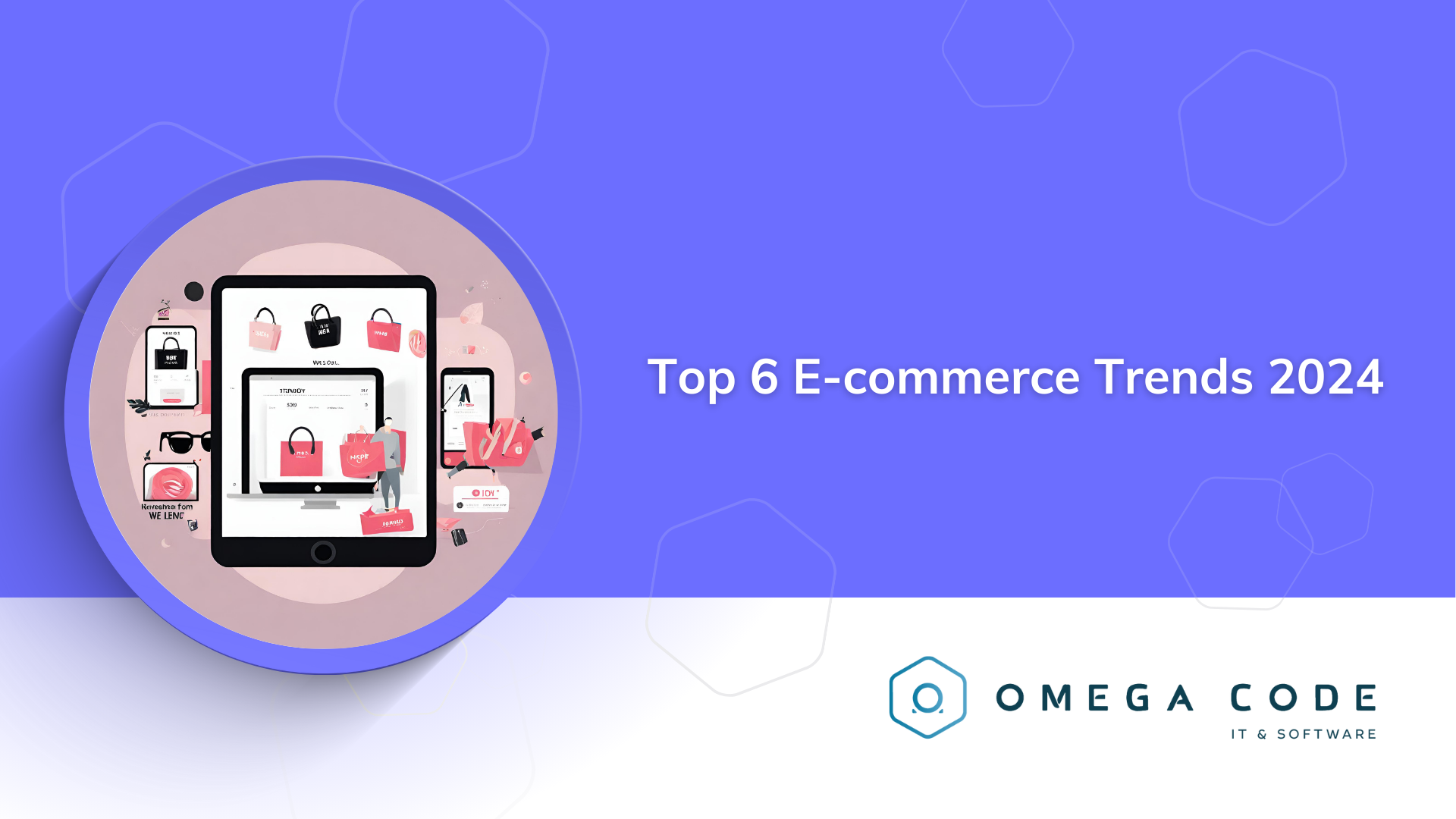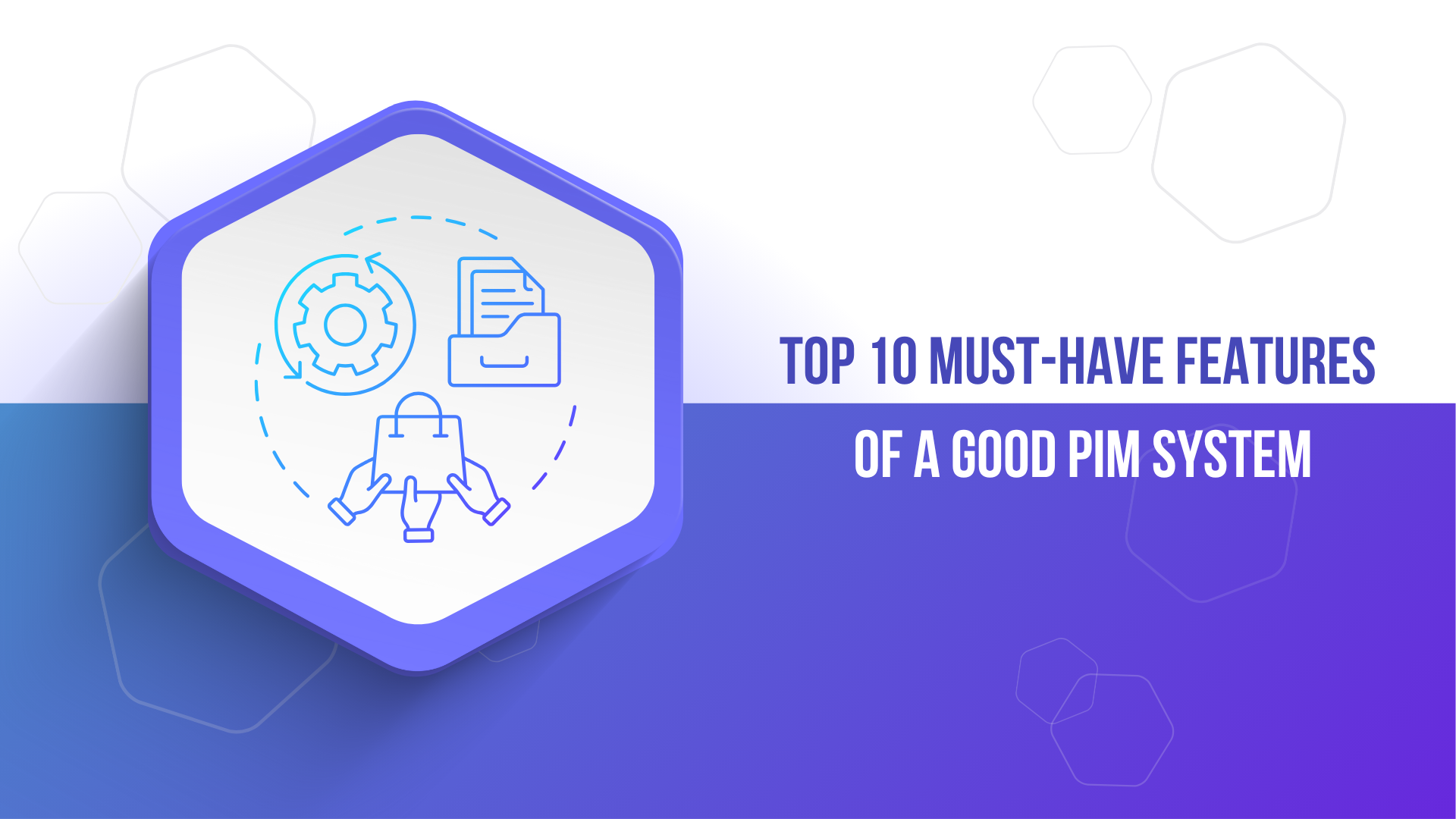Top 6 E-commerce Trends 2024
Discover the 6 key e-commerce trends for 2024 that are revolutionising the market.

E-commerce market in 2024
The pandemic fueled a global e-commerce boom from 2020 to 2022. Although growth slowed slightly in 2023 due to economic crisis, the industry continued to experience significant expansion. Last year, this market reached a value of 16.27 trillion USD, marking a roughly 15% increase compared to the previous year. Forecasts indicate that by 2024, the market will escalate to 18.71 trillion USD, and reach the value of 57.22 trillion USD by 2032.
Artificial intelligence will play a pivotal role in the further evolution of e-commerce. This advancing and increasingly common technology will introduce a genuine revolution and fundamentally transform this industry. However, this is not the only e-commerce trend worth delving into.
E-commerce Trends 2024
Let's check out the key trends that will shape the e-commerce market in 2024:
Omnichannel
Diversification and multi-channel strategies have been around in the e-commerce world for a while. However, as technology advances, consumer behavior and how they make purchasing decisions change, leading to shifts in sales strategies and processes. Nowadays, there are different channels and platforms used for online sales, like social media, marketplaces, and live commerce events (popular in the fashion industry).
However, implementing an omnichannel approach comes with its own set of challenges. Keeping product information up-to-date across multiple sales platforms can be quite troublesome. Manually editing product descriptions and images can lead to errors and demands a significant commitment from both sales and marketing departments. Therefore, to effectively execute an omnichannel strategy, it's essential to adopt modern e-commerce platforms that can streamline and automate these processes.
The e-commerce platform market offers a wide range of options, and the choice of tool should align with your specific requirements and preferences. For an effective omnichannel strategy, consider platforms like Pimcore or Shopware, which enable seamless integration across multiple channels and streamline sales management within a single system. Alternatively, if you're looking to build marketplaces, options like Mirakl and IZBERG are worth exploring. To delve deeper into the benefits of these and other platforms, check out our blog post: "Top 9 e-commerce platforms for 2024."
Personalization
Artificial intelligence in e-commerce opens up extensive possibilities for personalizing content and offers tailored to individual customers. With AI, it's possible to craft unique shopping experiences based on user preferences, and thus to boost conversion rates, foster customer loyalty, and build a positive brand image.
Personalization through artificial intelligence can be accomplished through various means, including:
-
Customer segmentation
Using data collected from user interactions within the store, such as website activity, product views, reactions to advertisements, page visits, past purchases, or returns, artificial intelligence constructs predictive models to anticipate a person's future behavior. These models can assist the marketing department in crafting targeted messages aimed at encouraging customers to take desired actions, such as repeating purchases.
-
Product recommendations
AI enables the delivery of personalized product recommendations to customers, drawing from data such as search queries, past purchases, store behavior, and responses to marketing messages. By leveraging this information, AI can suggest products tailored to individual preferences, enhancing the likelihood of a purchase. Moreover, AI-driven data processing allows the store to automatically present customized advertisements to targeted customers and send personalized emails. -
Dynamic offers and prices
Thanks to AI, it's possible to customize offers and pricing for specific customers or customer segments based on their behavior. By estimating the likelihood of a customer's response to a particular price point, businesses can tailor offers to meet their expectations, effectively maximizing profits. This personalized approach facilitated by AI enables businesses to optimize their pricing strategies and respond to individual customer needs more effectively.
Growth of business sector
In recent years, B2B (Business to Business) and D2C (Direct to Customer) sales have gained significant importance in the e-commerce industry. This involves producers selling directly to either business customers or consumers, bypassing distributors. In 2019, the percentage of D2C sector consumers was 49%, while in 2022 it had risen to 64%. Regarding the B2B market, it is expected to grow by 20% by 2030, and by 2024, it will exceed 2.3 billion USD.
The rapid growth of these sectors is no coincidence - such sales models provide producers with numerous advantages, including eliminating intermediary margins, keeping significant control over the sales process, providing greater predictability and simplifying production management.
Thankfully, numerous modern platforms like Pimcore or Shopware enable efficient management of both B2B and D2C sales. However, it's crucial to select a system that facilitates integration with internal systems such as ERP, WMS, suppliers, and contractors. If the existing market solutions don't align with your requirements, there's always the option to design and develop a custom B2B platform tailored to your specific sales process. If you're interested in learning more about this opportunity, don't hesitate to reach out to us.
Digital Product Passport (DPP)
The European Union, in its commitment to sustainable development and environmental protection, plans to introduce the Digital Product Passport. This electronic document will contain crucial information such as the product's source, composition, environmental impact, and recommendations for recycling and disposal. The aim is to prevent greenwashing, which misleads consumers with inaccurate claims about sustainability, and to simplify the process of identifying genuinely ecological products.
Although the implementation of the Digital Product Passport is planned for 2026, it is worth taking steps now to prepare for it. These preparations may include adapting production processes, modifying packaging, implementing new technologies, or undergoing organizational transformations. Such changes may take longer than one or two years to complete.
One of the key elements aiding in preparation for the Digital Product Passport is the adoption of a PIM (Product Information Management) system. This system ensures efficient management of product information and maintains consistency across all sales channels, thereby simplifying compliance with European Union requirements.
You can find further information on the benefits and implementation of PIM here.
Deferred payments
Deferred payments represent another emerging trend in the e-commerce industry. They involve postponing payments directly within the store, bypassing the need for loans through a bank. Both B2B and B2C customers are eager to use this option, and e-commerce sellers are increasingly accommodating this form of payment.
To effectively implement deferred payments, it's essential to have the right infrastructure in place. Fortunately, most e-commerce platforms already provide the capability to integrate such payment options. If you're interested in learning more about how to set up deferred payments on your platform, feel free to reach out to us.
Cross-border trade
Exporting goods to other countries is a natural progression for many producers. It opens up opportunities to enter new markets and tap into millions of potential customers. Foreign sales can expedite a company's growth, enhance brand recognition and significance, and facilitate much faster expansion compared to operating only within the local market.
However, companies aiming for cross-border sales in 2024 will need to leverage technological solutions that enable them not only to integrate foreign payment and delivery systems but also to implement automatic translation functions and provide multi-currency support.
Currently, the optimal tool for such sales is Shopware—a platform that facilitates scaling foreign sales through efficient management of multilingual content, customization of the sales process to comply with legal and tax regulations in various countries, and the ability to conduct seasonal sales. You can learn more about this platform here.
Top E-commerce Trends 2024: The Summary
Modern technologies are increasingly shaping the e-commerce market.
They not only change consumer behavior and habits but also offer a number of opportunities and tools essential for enhancing and expanding online sales. When incorporating the latest trends, leveraging modern e-commerce platforms is particularly beneficial, as they facilitate the seamless adjustment of store functionality to meet customer expectations.
If you need help choosing e-commerce platforms and tools to grow your store effectively, feel free to reach out to us. As experts in implementing and designing sales platforms, we'll provide advice on solutions that match your needs and budget.





